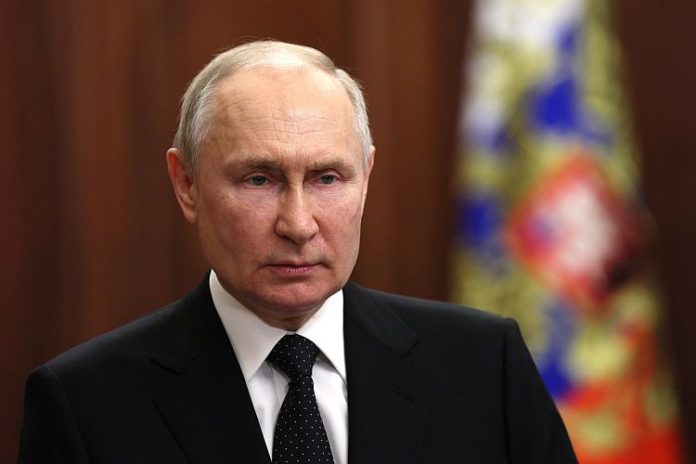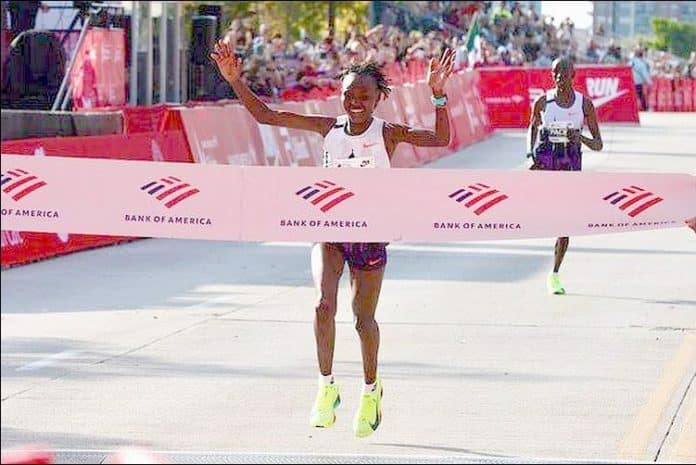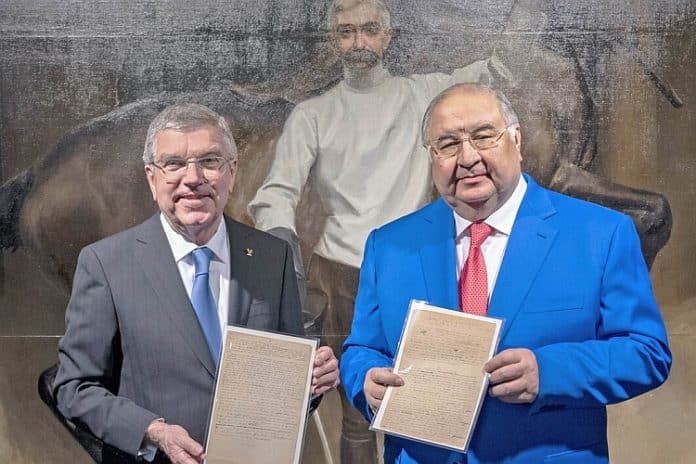/It’s a pleasure to present this guest column by one of the most knowledgeable observers of the Olympic Movement, Britain’s David Miller. For more than 50 years, the former English footballer has covered the Olympic Games and the sports within it, including 15 years as the Chief Sports Correspondent of The Times of London, with stints at the Daily Express and the Daily Telegraph. Author of books on athletics, football and the Olympics, he was Official Historian of the IOC from 1997-2018. His opinions are, of course, his own alone./
Can the modern Olympic Games, inspiration of Pierre de Coubertin, survive another century?
During October the sun temporarily shone for the world’s ultimate assassin, Czar Vladimir Putin, his specialty being the destruction of Ukrainian maternity hospitals.
A duplicitous proverbial witch’s cauldron was brewing simultaneously between Moscow and Kazan, a prosperous Muslim provincial city 500 miles east of the capital and host of this year’s gathering of BRICS: a financial/political amalgam of predominantly non-democratic states sharply contrasted to the U.N., NATO, and the European Union. A would-be Russian empire haven. Proclaiming to some 36 assembled nations there should be a tranquil approach for “competent resolution” of the “war” with Ukraine was the theme paraded from Moscow.
This was a futile falsification: Russia’s U.N. crime is not a war but an unwarranted invasion, condemned with its perpetrator as a crime justifying trial. Supplication being proposed by new Minister of Sport and a proposed Russian National Olympic Committee President Mikhail Degtyarev – with Putin’s approval – suggesting a portrayal of “international co-operation to promote mutual values” is political blasphemy.
Degtyarev pleads a “readiness for dialogue” alongside Russia’s “return to the Olympic movement in accord with our social contribution, restoring the rights of our athletes.”
While the International Olympic Committee and the global arena has welcomed a beguiling, justified vanity of an outstanding Paris Games, the simultaneous prospect of Donald Trump’s presidential re-election and potential withdrawal of military and moral reinforcement of Ukraine, spells not Olympic fortitude for Los Angeles in 2028 but continued torment with U.S.-Russia relationships inviting the boycott scenario of 1980-84.
Here potentially emerges an echo of my 70 years as Olympic commentator, attending and analysing 28 Games and a majority of 60 annual IOC Sessions, and witnessing five of the last seven IOC presidents experiencing more wobble than wisdom. The Olympic spirit will tremble if adventurous LA28 leader Casey Wasserman and euphoric aides become trampled upon by Trump.
Coincidence of Kazan’s hosting was fortuitous for Putin, nestling alongside an array of potential sympathisers in his ideological field, including China, India, South Africa and Iran, though unity of opinion regarding Ukraine’s destruction was far from conclusive: a reflection of the judgement expressed on BBC TV recently by past U.K. premier John Major: “The world’s future hangs heavily in coming years on the capability of democratic nations to uphold their principles in the face of dictators who now rule some 30 major global nations.”
If Putin felt more comfortable, opinion within BRICS was less than unanimous, not least from Narendra Modi of India. Only Brazil actively deplored Moscow’s invasion; any support for Russia was denounced by Ukrainian President Volodymyr Zelenskyy, yet BRICS’ increasing membership effectively strengthens Russia’s economic influence across a politically divided globe, the more so with its mounting Muslim and Arabic membership.
Concern about the impending election of a new IOC president in March next year is evident among those with long experience of IOC administrative uncertainty, not least by Michael Payne, a former marketing director whose inexhaustible journeys among crucial TOP sponsors during the Salt Lake voting scandal of 1999 did much to prevent the IOC’s destruction. “Paris brought a massive sigh of relief, wonderful if not perfect” Payne reflects.
“Whoever succeeds Thomas Bach will need serious leadership, politically and financially, and the challenge will not be for the faint-hearted. It needs a heavyweight, as we learned from the inadequate years of Jacques Rogge’s presidency. The presidency is no place for an empty suit, and the mandate has become more complex, especially with the departure of several leading TOP financial contributors and the arrival of less experienced sponsors from the Middle East.
“Yet when did the IOC ever fully comprehend the true dimension of its responsibilities?”
Outgoing President Bach, whose legal competence and administrative perception did much to adjust IOC constitution, reluctantly acknowledging the time for him to retire, concedes: “You now need to be immersed in the digital world, a new way of living, calling for new leaders.” Richard Pound, eminent Canadian lawyer, irresponsibly ignored as ideal president in past elections, acknowledges: “Bach’s successor will inherit a more expert administration than the IOC has previously enjoyed.” Yet the stakes are crucially demanding, as Pound questions: “Is there one or more candidate who can put the magic back into the Games? It’s not just administration, but who can excite the next generation of youth and supporters and sponsors?”
Of the contesting seven candidates, four are leaders of International Federations: Sebastian Coe (athletics), Johan Eliasch (skiing), David Lappartient (cycling) and Morinari Watanabe (gymnastics). All honourable, competent figures but short on diplomatic international negotiating experience beyond the world of finance. Handling diplomatically the likes of Donald Trump and China’s Xi Jinping in the destination of bi-annual global events is hardly akin to trading in sports equipment and building the odd stadium. Coe, the most prominent of the seven, remains compromised by the introduction of prize money exclusively for his sport of track and field, and this might play into the hands of the sole female contestant Kirsty Coventry, former Olympian swimmer from Zimbabwe.
In the wake of Paris celebrations, the Olympic world attempts to believe the ethical, humanitarian-civilised concept of Coubertin is safe and secure for all time: the evidence is contradictory. The forces of economy and climate have just been exposed by a drastically re-scheduled Commonwealth Games of 2026 in Glasgow, replacing financially-defunct Victoria (Australia), with 10 sports abandoned. Worldwide industry’s future – with climate upheaval and million-strong cross-continent migration – is unpredictable. Can seven honourable souls muster between them the intellectual, diplomatic strategy to sustain Coubertin’s concept within civilisation’s existence?
This consistently challenged by the rivalries of John Major’s lamented dictators. It is a lonely, alarming call. Olympism has been but a blink of minute existence across a billion years. Putin or Xi Jinping are no more than a passing, minuscule squeak within history. As the immortal Bard reflected:
Ye, all which it inherit, shall dissolve
And like this insubstantial pageant faded,
Leave not a wreck behind.
We are such stuff as dreams are made of,
And our little life is rounded with a sleep.
Comments are welcome here and or direct to David Miller here.
¶
You can receive our exclusive TSX Report by e-mail by clicking here. You can also refer a friend by clicking here, and can donate here to keep this site going.
For our updated, 885-event International Sports Calendar for the rest of 2024, 2025 and beyond, by date and by sport, click here!



























